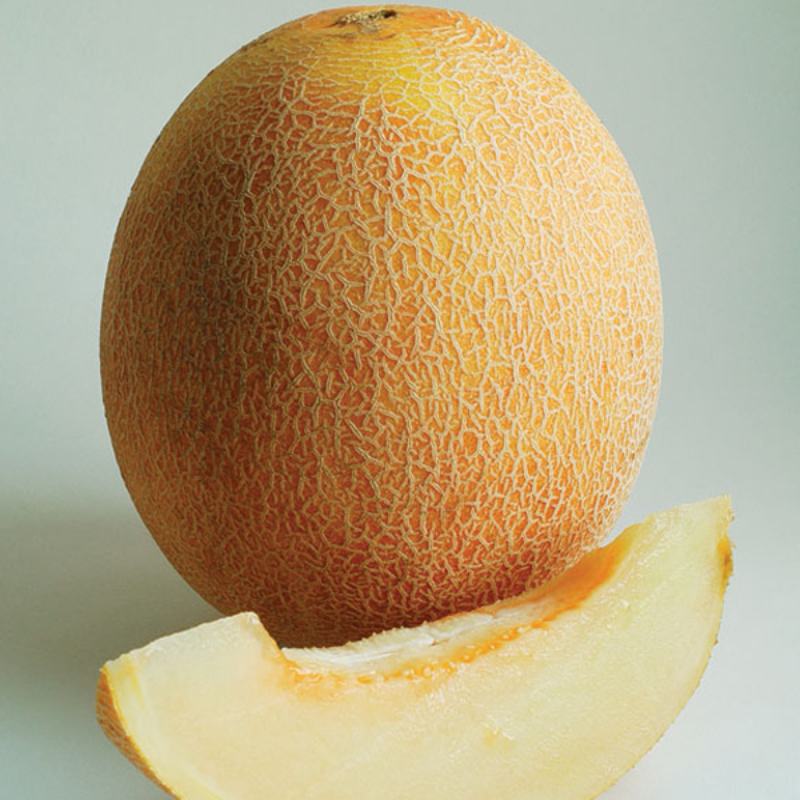- Species and varieties: Honeydew melons (Cucumis melo) belong to the muskmelon species. There are several varieties of honeydew melons, including 'Green Flesh' and 'Orange Flesh'. Organic honeydew seeds are grown without synthetic pesticides or fertilizers, ensuring a natural and eco-friendly cultivation process.
- Hybrid or heirloom: Organic honeydew seeds can be either hybrid or heirloom. Hybrid varieties are bred for specific traits such as disease resistance and uniformity, while heirloom varieties are open-pollinated and have been passed down through generations, preserving their original characteristics.
- Pruning and training: Pruning is not typically necessary for honeydew melons, but removing any diseased or damaged leaves can help improve air circulation and reduce the risk of disease. Training the vines to grow on a trellis can save space and keep the fruits off the ground, reducing the risk of rot and pest damage.
- Fertilization needs: Honeydew melons benefit from a balanced fertilizer applied at planting and again when the vines begin to run. A fertilizer with a higher phosphorus content can promote fruit development. Organic options such as compost or well-rotted manure can also be used to enrich the soil.
- Hardiness zones: Honeydew melons thrive in USDA hardiness zones 4-11. They require a warm growing season with plenty of sunlight.
- Climate requirements: Honeydew melons need a warm climate with temperatures between 70-85°F (21-29°C) during the growing season. They require full sun exposure and well-drained soil with a pH between 6.0 and 6.8. Consistent watering is essential, especially during fruit development.




